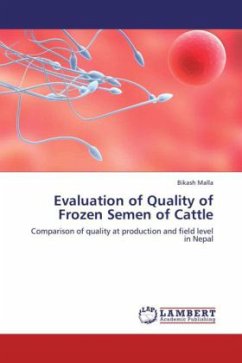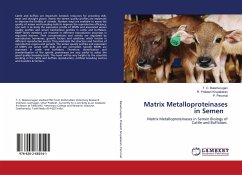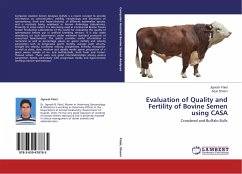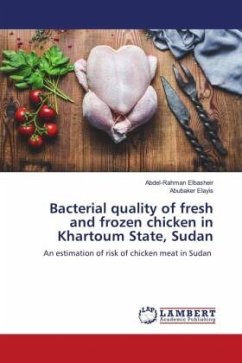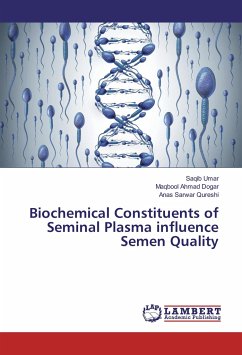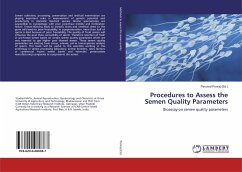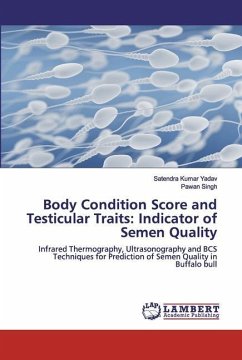In Nepal, the demand for the milk and milk products is increasing. So, to meet this demand, there is increasing demand of high yielding breeds of dairy cattle. This demand was fulfilled to some extent by the introduction of Artificial Insemination (AI). Although, AI has been increasingly practiced in Nepal, the success rate of conception is generally below 50%. Though there might be various factors involved, quality of frozen semen might be one of them. This book mainly describes the procedure for assessing the quality of frozen semen of cattle used for AI and the comparison of the quality of frozen semen between production and field level in Nepal. From this book, readers can get the idea about the quality of frozen semen that the Nepalese dairy farmers are getting for the AI of their dairy cattle. This book will be beneficial for the students, dairy entrepreneurs, animal breeders and the personnel of the government at the policy level.
